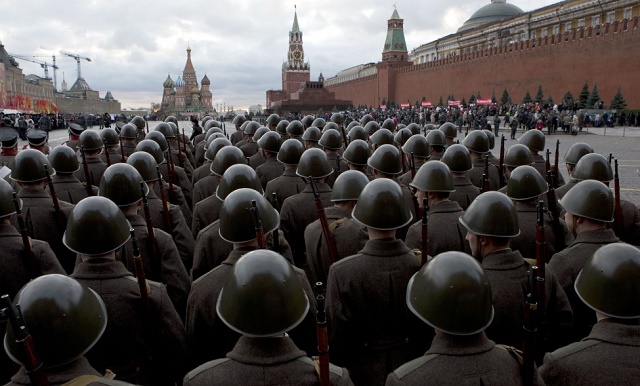Many have said in the past that were it not for Soviet Russia, the Allies might not have won the Second World War. Yet historians sometimes ignore this belief when writing on the significance of certain events, such as D-Day. As it turns out, some Russian citizens have a much different view on how significant D-Day really was from the standpoint of Soviet Russia and its people during the war.
They refer to the Second World War as the Great Patriotic War, and it certainly united many of their people in the same way it united other nations who took part in the fight against fascist regimes worldwide. As far as the Normandy landings are concerned, some who were alive in Soviet Russia at the time believe that it did not help their overall efforts as much as modern publicity would have people believe. This revelation comes in the wake of Russian President Vladimir Putin appearing alongside other international leaders to commemorate the event that shook the landscape of WWII on its seventieth anniversary.
The Red Army was apparently aware of its large contribution to the war effort, and after losing millions of soldiers, they did not see the benefit of the Normandy landings. To the Western armies, Operation Overlord contributed greatly to the Allied victory. To Soviet Russia, it was a costly risk that did not change the fact that they already believed they were going to win. In fact, they were not even certain that they needed the other Allied armies, The Star Online reports.
Churchill and Stalin did not always get along during the Second World War, and one of the biggest arguments between the two regarded the risk in opening the second front. After bombarding the Germans with explosives, the Allied forces took the beaches of Normandy while Soviet Russia attacked from the other side. Some modern Russians believe that the British and Americans were simply biding time while they waited for the enemy forces to dwindle to a point that would make their attack easier.
Whether D-Day was as important as believed or not, Soviet Russia was doubtlessly important to Allied efforts. Any sense of unity between the nations would be strained, however, when the Communism of the era was seen as a threat following the end of WWII. Despite the joint effort to end fascism in other nations, this distrust between Soviet Russia and the rest of the Allied forces would delay a full peace as the Cold War led to the continuation of tense relations between the Russians and the other Allies.
